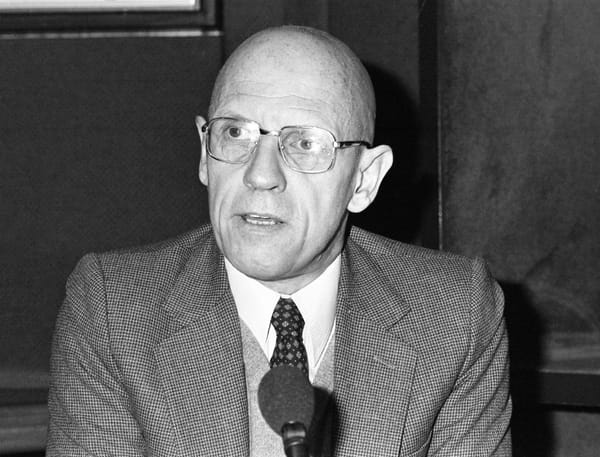The 40th anniversary of Foucault’s death has prompted careful consideration of his legacy, as we increasingly live in a discursive world that he had a hand in creating, with institutions that purport to give effect to his critique of norms and normality. Nowhere is this more evident than in the contemporary domain of “sexuality,” which invokes Foucault’s ideas while inverting them in practice. How did this happen? It seems that the mode of discourse Foucault critiqued as the “repressive hypothesis” never goes away, because it continues to serve the purposes of social power.
Foucault’s massive History of Sexuality, published in four volumes from 1974 to 2018, begins with a story told frequently by proponents of sexual liberation, in his time and right down to our own. It’s a story of the continuing repression of sex—and not just of sex, but of any discussion of it. “On the subject of sex,” Foucault wrote, summing up the story,
silence became the rule. The legitimate and procreative couple laid down the law. The couple imposed itself as model, enforced the norm, safeguarded the truth, and reserved the right to speak while retaining the principle of secrecy. … The rest had only to remain vague; proper demeanor avoided contact with other bodies, and verbal decency sanitized one’s speech.
According to the story—the one at the heart of the repressive hypothesis—everything that fell outside of the norm could “expect sanction or protection.” This still-dominant idea—that sex was hidden until some recent point, when it began to be “liberated”—was precisely what Foucault set out to criticize.
